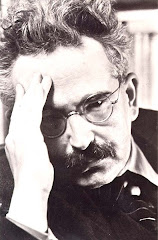The following ideas come from my extended understanding of Levinas' essay, "Desacralization and Disenchantment" in Nine Talmudic Readings:
According to the Torah, one becomes impure through contact with the dead. But, because there no longer exists a temple, the whole world is impure.
Surely the prohibition against encountering the dead does not forbid us from remembering the dead. No, rather, we are disallowed from communing with the dead, from necromancy. We cannot ask the dead for advice. We cannot be weighed down, mortified, by the past. We cannot be historians.
And yet...we are. In exile, in modernity, in catastrophe, nobody is exempt, not even the high priest, from making contact with the dead, even if indirectly. To live in exile is to live in temporality, to dwell in the shadow of death.
Only in a redeemed world will we cease from our sorcerous engagement with the past. We won't have to worry about the dead, because the dead will be resurrected.
The return from death into life is the return from history into now. In redemption, all "not yets" and "no longers" are subsumed by an eternal yes.
Still, just as we are commanded to care for the dead, so we are commanded to remember that we were slaves in Egypt. The reminder of our limitations through both mitzvot, bears more meaning than redemption itself. Because, in redemption, we know God. But in history, we love God. The sages tell us that carrying out a divine commandment in this fallen world is sweeter than living care-free in heaven.
Wednesday, January 14, 2009
Subscribe to:
Comments (Atom)





